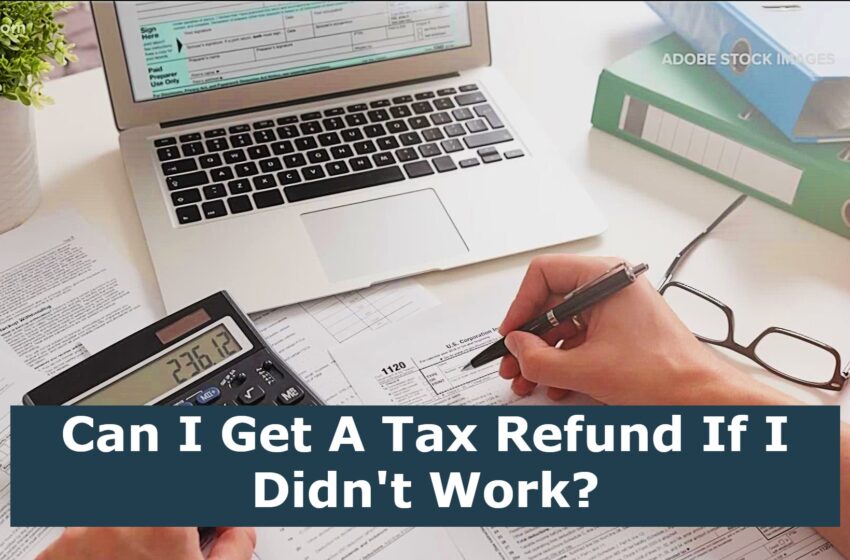
Can I Get A Tax Refund If I Didn’t Work?
If you have ever wondered if you could get a tax refund if you did not work, you will be happy to know that it is possible! There are a few tips to make sure that you do not miss out on this opportunity.
Earned income tax credit
If you’re filing your federal tax return but you don’t have earned income, you can still qualify for a refundable tax credit. The earned income tax credit is designed to help low-income individuals and families. In addition to helping offset the taxes they owe, a refundable tax credit can boost their earnings and help them continue to work.
You can receive a refundable tax credit if you have a job or are a student, and you meet certain eligibility requirements. To find out if you’re eligible, consult a qualified tax professional.
While EITC is available for federal taxpayers only, some states offer their own Earned Income Credit (EIC). In addition, there is a new credit, the Additional Child Tax Credit (CTC), for people who have a child and earn less than $7500 in 2023.
Depending on your filing status, the earned income tax credit can provide a large refund. A single person can expect a refund of about $519. People with more than one child can receive a refund of up to $6,431. This amount increases with each additional child.
Getting a tax refund if you don’t have earned income is easy, but you will need to file a tax return. There are a number of IRS e-file providers that will help you file.
CTC tax credit for taxpayers with children
If you have children, you may qualify for the Child Tax Credit (CTC) and the Additional Child Tax Credit (ACTC). They are both tax credits that reduce your income tax liability.
The CTC allows you to claim up to $2,000 per qualifying child. You can also claim up to $1,500 for a spouse or other dependent. To qualify, you need to have a Social Security number and a valid ITIN. In order to claim the CTC, you must fill out Form 1040 line 12a.
ACTC is a refundable credit. If you meet certain requirements, you can receive up to $3,600 for each qualifying child. However, not all low-income taxpayers with a qualifying child are eligible for full ACTC.
The CTC has been partially refundable in the past, but it was made fully refundable in 2021. This is largely because the TCJA ensured that the partially refundable portion of the credit gets adjusted for inflation each year.
Before 2021, the amount you could receive for the CTC was limited to $1,000. When you qualified for the credit, the IRS would send you a check for the difference.
After the TCJA, the amount of the credit you could claim was increased to $2,000 per qualifying child. You can only claim the additional credit if your taxable income is below $200,000 for single filers and above $400,000.
The CTC and the ACTC are not available for all taxpayers. Some states, such as California and New York, offer complementary state-level child tax credits.
Filing a tax return
It may seem like you don’t need to file a tax return if you don’t earn any income. While this is true, there are still reasons to do so. A few of the most notable ones include receiving a refund, taking advantage of tax credits, and getting back taxes you’ve already paid.
In order to take advantage of the perks of filing a tax return, you’ll need to know what the requirements are. These vary by filing status, but the minimum income requirement changes annually.
If you haven’t filed a tax return in several years, it’s a good idea to start a new one. You’ll need to make sure that you’ve obtained the proper documents, such as your W-2 forms from your employers.
One of the first things you’ll need to do is find out which tax credit you qualify for. The IRS has a variety of tax credits for you to choose from, including the Earned Income Tax Credit (EITC), the American Opportunity Credit, and the child tax credit.
Another tax credit you might qualify for is the refundable child tax credit, which is available to families that have children under the age of 17. The child tax credit can help you cover the costs of childcare, including preschool or kindergarten.


